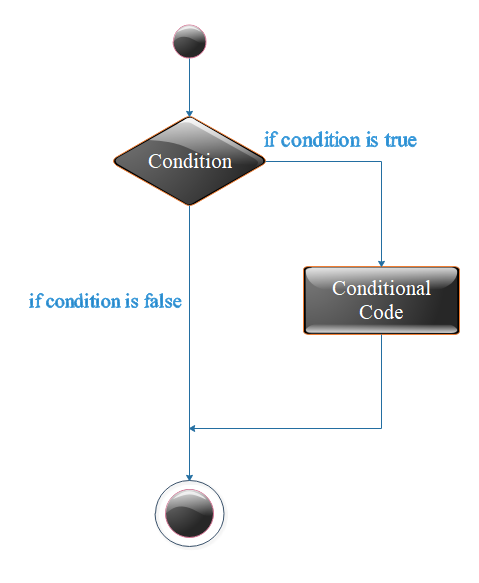if statement in c
- One of the simplest ways to control program flow is by using if selection statements. Whether a block of code is to be executed or not to be executed can be decided by this statement.
- The syntax for if selection statement in C could be as follows:
- If the conditional expression is true, the target of the if will be executed; otherwise, the target of the else, if it exists, will be executed. At no time will both be executed.
- The conditional expression controlling the if may be any type of valid C expression that produces a true or false result.
- If the Boolean expression evaluates to true, then the block of code inside the 'if' statement will be executed.
- As a general rule, we express a condition using C's relational operators.
- The relational operator allow us to compare two values to see whether they are equal to each other, unequal, or whether one is greater thanthe other.
Syntax:
if(condition)
{
statement(s); /*to be executed, on condition being true*/
}
| this expression | is true if |
|
x == y x != y x < y x > y x <= y x >= y |
x is equal to y x is not equal to y x is less than y x is greater than y x is less than or equal to y x is greater than or equal to y |

Fig- Flow Diagram of if statement
Example:
#include <stdio.h>
int main()
{
int number;
printf("Enter an integer: ");
scanf("%d", &number);
// Test expression is true if number is less than 0
if (number < 0)
{
printf("You entered %d.", number);
}
printf("The if statement is easy.");
return 0;
}
Output:
Enter an integer: -2 You entered -2. The if statement is easy.